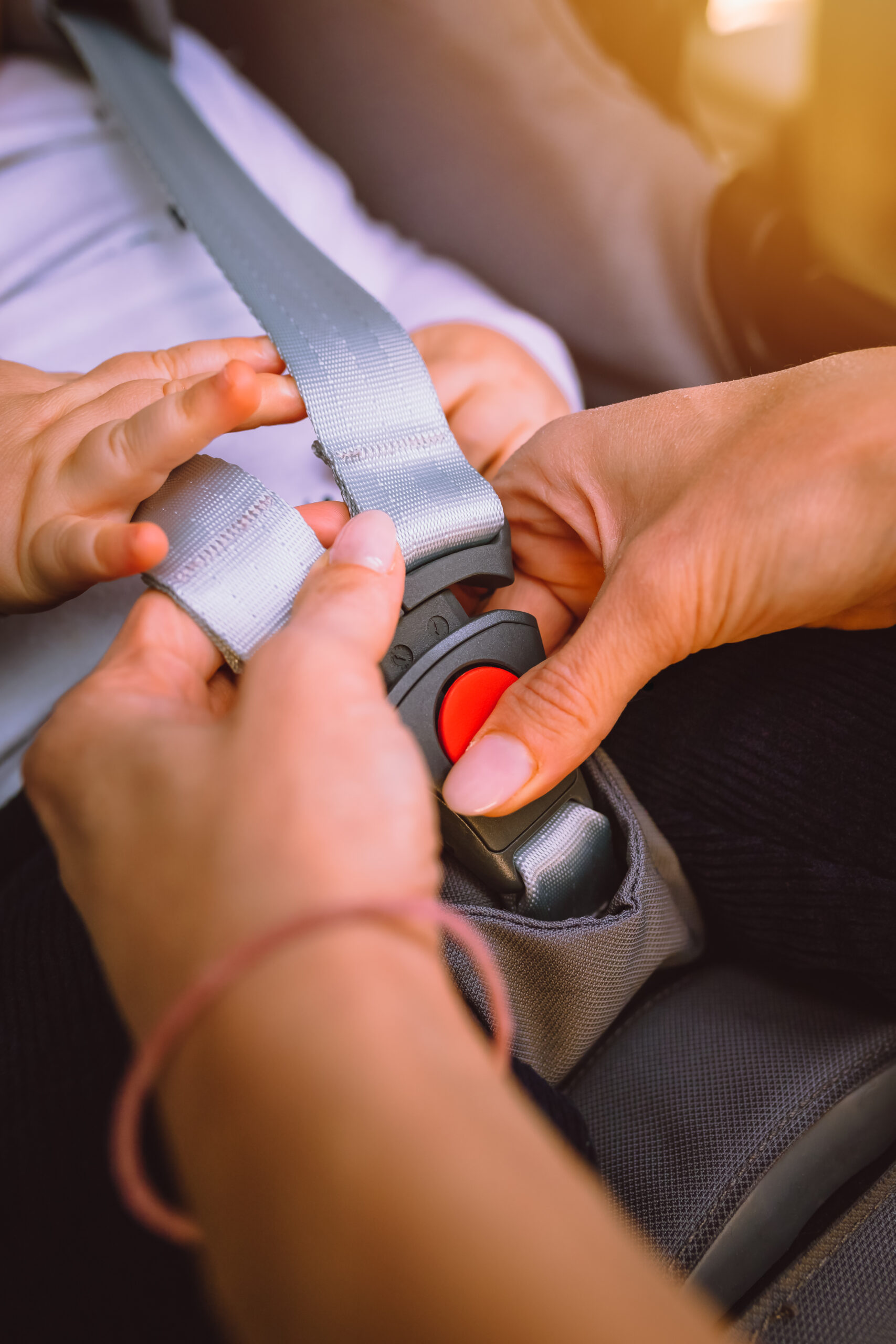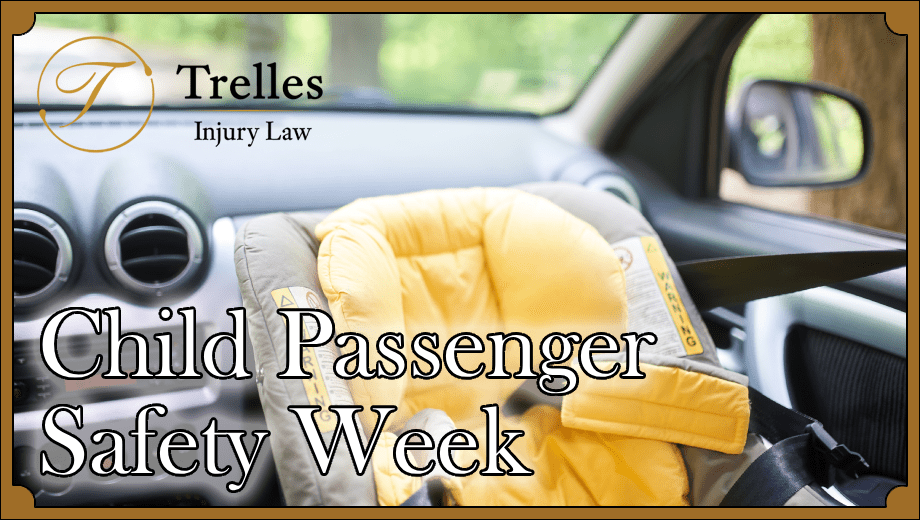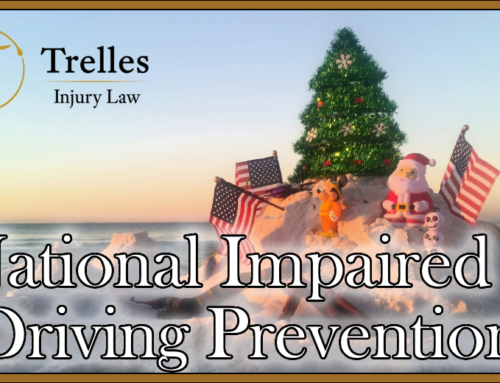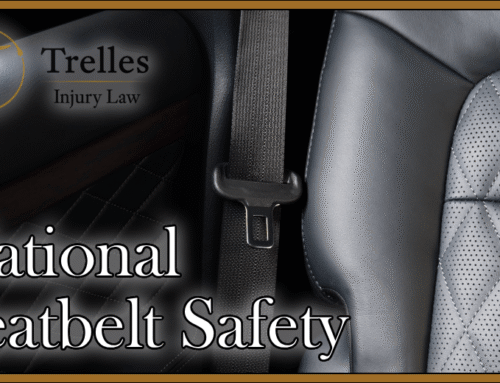Every year, the National Highway Traffic Safety Administration (NHTSA) organizes Child Passenger Safety Week, a nationwide campaign dedicated to keeping children safe on the road. Car crashes remain one of the leading causes of death among children in the United States, but the proper use of car seats, boosters, and seat belts significantly reduces those risks. This week-long initiative reminds families that safety begins before the vehicle ever leaves the driveway.
The campaign isn’t just about rules and regulations. It’s about raising awareness. For many parents, car seat instructions feel overwhelming, and it’s easy to assume “close enough” is safe enough. However, data shows that nearly half of all car seats are installed incorrectly. By focusing national attention on child passenger safety, NHTSA gives families the tools they need to protect their loved ones and prevent tragedies.
What Is NHTSA Child Passenger Safety Week and Why It Matters
NHTSA Child Passenger Safety Week takes place every September, aligning with National Seat Check Saturday. During this time, certified technicians across the country volunteer to inspect car seats and show caregivers how to use them properly. The purpose is not only to fix mistakes but also to teach long-lasting habits that improve child safety.
The reason this week matters so much is because of the widespread misuse of child restraints. Many parents transition their children too early from one stage to the next, or they unknowingly loosen straps to make their child more comfortable. These seemingly small choices can make a huge difference in the outcome of a crash. Child Passenger Safety Week provides families with both the awareness and the confidence to make safer decisions every time they buckle their child in.
Table of Contents
- What Is NHTSA Child Passenger Safety Week and Why It Matters
- The History and Mission of Child Passenger Safety Week
- Key Safety Goals of NHTSA
- Car Seat Safety Tips
- Common Mistakes Parents Make
- How NHTSA Child Passenger Safety Week Saves Lives Every Year
- Community Events During Child Passenger Safety Week
- The Role of Law Enforcement
- How Families Can Participate in Child Passenger Safety Week
- Why Child Passenger Safety Week Is Crucial for Road Safety Awareness
The History and Mission of Child Passenger Safety Week
The origins of this campaign can be traced back to NHTSA’s larger mission of reducing roadway deaths and injuries. Over the years, Child Passenger Safety Week has grown into a national movement supported by hospitals, schools, community organizations, and law enforcement. By uniting different sectors of society, the initiative ensures that parents receive consistent, trusted information about car seat safety.
The mission is straightforward but powerful. It seeks to increase the proper use of car seats, booster seats, and seat belts for children of all ages. Through education, free resources, and nationwide events, NHTSA makes safety accessible to every family. It’s not just about compliance with the law. It’s about empowering caregivers to protect their children with knowledge and awareness.
Key Safety Goals of NHTSA
The campaign is built around a few essential goals that directly impact children’s safety. First, it seeks to ensure that parents and caregivers are selecting the right restraint for their child’s age, weight, and height. With so many car seat models on the market, it’s easy to feel confused, but proper guidance helps narrow down the right options.
Another goal is to spread awareness about the importance of booster seats for children who have outgrown car seats but are not yet ready for seat belts alone. Finally, the week highlights the need for consistent seat belt use among older children and teens. Each of these goals plays a role in reducing injuries and fatalities while reinforcing the idea that safety is an ongoing responsibility.

Car Seat Safety Tips
To support families, NHTSA and safety experts provide actionable tips during the campaign:
- Keep children rear-facing as long as possible. This position offers the greatest protection for young children.
- Check the harness regularly. Straps should be snug and flat, with the chest clip positioned at armpit level.
- Use the top tether for forward-facing seats. This prevents dangerous forward movement in a crash.
- Avoid bulky clothing in the seat. Thick jackets can create slack and reduce effectiveness.
These tips may appear simple, but they can be life-saving. Even small corrections like tightening a strap or raising a chest clip can make a dramatic difference in how well a car seat performs in an accident.
Common Mistakes Parents Make
Despite best intentions, many caregivers still make errors that compromise their child’s safety. One of the most common is using an expired or recalled car seat, often passed down from friends or family members. While it may seem like a money-saver, outdated car seats may no longer meet current safety standards, or their materials may have weakened over time.
Another frequent mistake is moving a child out of a rear-facing seat too early or allowing a booster seat to be used before the child is tall enough for the seat belt to fit correctly. Parents may also install the seat loosely, leaving it vulnerable to shifting during a crash. Highlighting these mistakes during Child Passenger Safety Week ensures that families are more mindful about the decisions they make.
How NHTSA Child Passenger Safety Week Saves Lives Every Year
The effectiveness of this campaign is clear when looking at the statistics. Studies show that car seats reduce the risk of fatal injury by 71% for infants and by 54% for toddlers when used correctly. Booster seats further reduce the risk of serious injury in children ages four to eight by nearly half compared to using a seat belt alone.
Each year, thousands of car seat checks are conducted, and countless errors are corrected. These adjustments may seem small, but each one represents a child who is safer in the event of a crash. The consistent national attention brought by this campaign creates a ripple effect, reinforcing safe practices in communities long after the week concludes.
Community Events During Child Passenger Safety Week
Across the country, families can take part in community-based events such as:
- Free car seat inspection clinics led by certified Child Passenger Safety Technicians (CPSTs).
- Demonstrations hosted by local fire and police departments.
- Educational workshops at hospitals, pediatric clinics, and schools.
- Safety fairs that combine fun activities with life-saving lessons.
These events are valuable because they go beyond written instructions. Parents get hands-on guidance in real vehicles, and technicians ensure that every child leaves safer than they arrived.
The Role of Law Enforcement
Law enforcement agencies are active partners during Child Passenger Safety Week. Police officers, sheriff’s departments, and highway patrol units help educate parents about local laws and best practices, while also reinforcing compliance during regular traffic stops. Their involvement ensures that safety is treated not just as a recommendation, but as a community-wide standard.
Many law enforcement agencies also host their own car seat installation sites or team up with schools and hospitals to provide education sessions. By combining education with enforcement, they play a critical role in both preventing accidents and encouraging safe habits that protect children on every journey.
How Families Can Participate in Child Passenger Safety Week
Families don’t need to wait for a special invitation to participate in Child Passenger Safety Week. One of the simplest ways is to schedule a car seat check or attend a local safety event. These free opportunities allow caregivers to gain confidence in their installation skills and learn new safety tips they might not have considered before.
Participation can also extend into daily habits. Parents can review their child’s restraint setup, ensure that older kids are buckling up properly, and share what they’ve learned with friends, relatives, and babysitters. Every caregiver in a child’s life needs to be on the same page, and spreading awareness ensures consistency.
Why Child Passenger Safety Week Is Crucial for Road Safety Awareness

Although the campaign lasts only one week each year, its message is timeless. Every day, millions of children travel in cars, and every one of those rides carries potential risks. By keeping child passenger safety in the national spotlight, NHTSA ensures that the conversation continues long after the campaign ends.
This focus on safety has broader benefits as well. When parents model proper restraint use, children grow up viewing seat belts and car seats as a normal and essential part of travel. Over time, this creates generational change, building communities where safety is prioritized and preventable tragedies are avoided.
The importance of NHTSA Child Passenger Safety Week cannot be overstated. It’s more than a campaign. It’s a life-saving reminder that every detail matters when it comes to child safety in cars. From harness adjustments to booster seat awareness, the lessons shared during this week empower families to make smarter, safer choices.
For parents, grandparents, and caregivers, this is the time to pause, double-check, and take action. Attend an event, review your child’s car seat setup, and share the message with others. Protecting children in the car means protecting the future, and that’s a responsibility we all share.
Lauren Pineda is the Firm Administrator at Trelles Injury Law, responsible for overseeing marketing, client relations, and administrative functions. Fluent in both English and Spanish, she began her career with the firm in 2016 as a Receptionist, later advancing to Legal Assistant, and ultimately to Firm Administrator in 2020. Lauren has been a Notary Public since 2015. She is an active member of the Association of Legal Administrators (ALA) and will serve as Secretary of the Palm Beach County Chapter (PBCALA) for the 2025-2026 term. She was also honored with the PBCALA Outstanding Volunteer Award for the 2023-2024 term.
Related Post
Free Consultation Form
We have vast experience in every type of accident case.
Give Us the details, and we will tell you how we can help.







